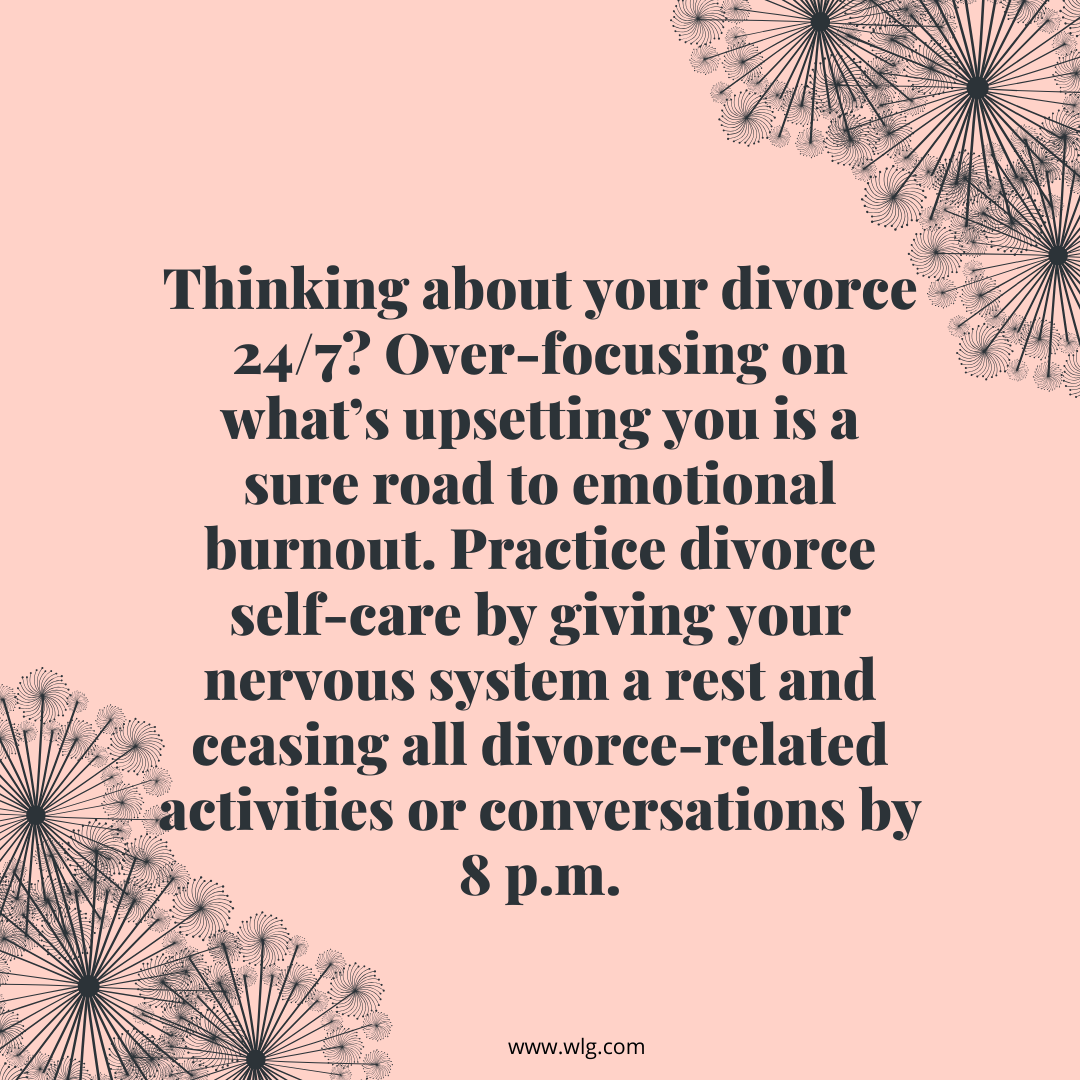5 Ways To Practice Divorce Self-Care

Divorce can be an overwhelming process, especially if it’s a high conflict one. It’s easy to lose oneself in a vortex of emotions, legal deadlines, and co-parenting decisions. And when you’re juggling all this on top of responsibilities in the workplace and on the home front, you may feel you don’t have time for self-care.
However, not prioritizing your health will just make your divorce more challenging. Staying physically and emotionally fit will give you the equanimity you need to navigate this difficult time successfully. Read on to learn the five most important things you can do to practice divorce self-care.
Sleep and eat properly. Most people struggle to sleep and eat well during divorce, but not doing enough of either will jangle your brain chemistry and make it difficult to function. Can’t get any shuteye? Practice divorce self care by going to bed at the same time every night, staying away from blue-light emitting electronics, and sleeping in a dark room. If the problem persists, talk to your doctor about a trial of medication to help you sleep. Have you lost your appetite? The “divorce diet” can make you sick, so keep up your strength by eating frequent small meals and packing easy-to-carry snack foods.
Exercise. Feeling anxious and depressed? Finding it hard to contain your anger? Exercise is a natural mood stabilizer and will help you get your mind off divorce. It’s great if you can get to the gym, or take a jog, but even walking for 20 minutes a day can help you ride out difficult emotions.
Divorce curfew. Are you thinking about your divorce 24/7? One reason people feel so drained during this process is because they don’t know how to set limits on their divorce. But over-focusing on what’s upsetting you is a sure road to emotional burnout. Practice divorce self-care by giving your nervous system a rest and ceasing all divorce-related activities or conversations by 8 p.m.
Talk to friends – but be selective. Confiding in friends and family can be comforting, but be sure you pick people who know how to listen. You don’t need to hear how much they hate your soon-to-be-ex, or the doubts they have about your attorney, or the baggage they carry from their own parents’ divorce. You want to talk to friends who calm you down, not rile you up. And remember to ask your friends how their life is going; if every conversation revolves around your divorce, you might end up pushing away the people you need to lean on.
Use coping skills. Are you white-knuckling your way through divorce? Trying to prove to the world that you “got this?” Squashing your feelings won’t win you any prizes or help you develop resiliency. In fact, pretending things are okay when they’re not will just exacerbate the stress you’re pretending not to feel. Divorce self care is all about learning to acquire and practice coping skills to manage difficult emotions so they don’t overwhelm you or cause you to act impulsively. Besides exercise, guided meditation, therapy, journaling, and creative endeavors are just some of the items to include in your coping skills toolbox.
One last important note: Developing divorce self-care habits won’t change your ex, but it will improve your ability to navigate whatever comes your way. Let your own well-being be your guide.
Have questions about divorce? We can help. Contact us today to schedule an initial attorney consultation to get answers to all your questions, and a clear strategy for moving forward. Call us at 888-888-0919, or please click the button below.
Schedule an Initial Consultation




